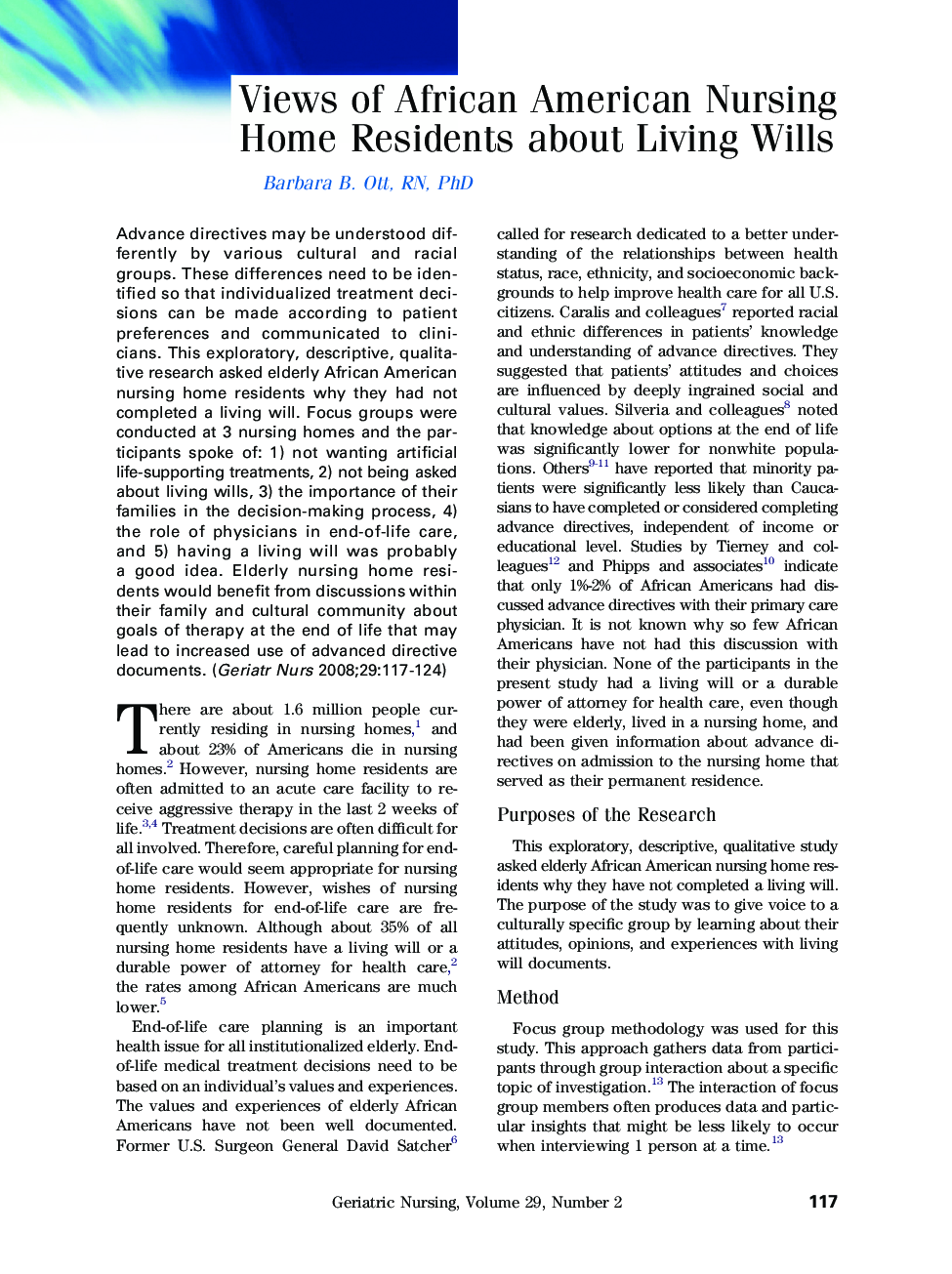| Article ID | Journal | Published Year | Pages | File Type |
|---|---|---|---|---|
| 2651258 | Geriatric Nursing | 2008 | 8 Pages |
Advance directives may be understood differently by various cultural and racial groups. These differences need to be identified so that individualized treatment decisions can be made according to patient preferences and communicated to clinicians. This exploratory, descriptive, qualitative research asked elderly African American nursing home residents why they had not completed a living will. Focus groups were conducted at 3 nursing homes and the participants spoke of: 1) not wanting artificial life-supporting treatments, 2) not being asked about living wills, 3) the importance of their families in the decision-making process, 4) the role of physicians in end-of-life care, and 5) having a living will was probably a good idea. Elderly nursing home residents would benefit from discussions within their family and cultural community about goals of therapy at the end of life that may lead to increased use of advanced directive documents.
